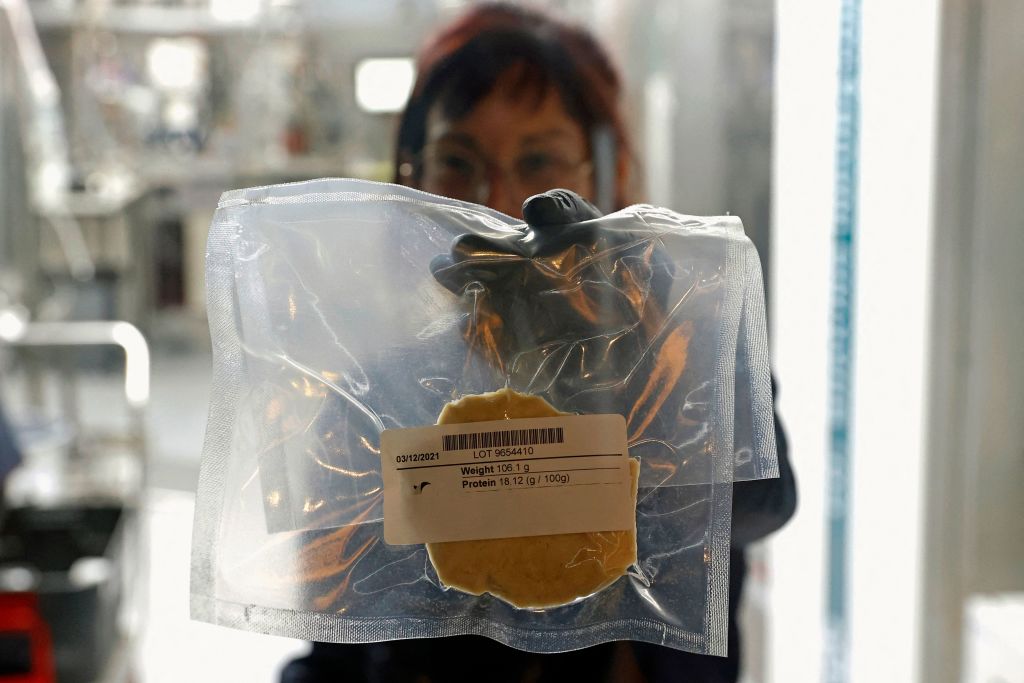UPDATE, July 15, 2023: This article has been updated to include more information on immortalized cells and a better discussion of their nature vis a vis cancer. The piece has also been updated to include a clearer answer to the question posed by the article’s title.
In a recent development that has sparked some excitement and a healthy dose of skepticism, the United States Department of Agriculture (USDA) has given its seal of approval to lab-grown or synthetic meat.
This groundbreaking decision has put the spotlight on Bill Gates, a prominent advocate and investor in this emerging industry.
While proponents like Gates hail lab-grown meat as a potential solution to global food challenges, critics raise valid concerns about its safety and long-term consequences.
Lab-grown meat, produced through cellular agriculture, involves culturing animal cells in a laboratory to create muscle tissues that mimic conventional meat.
Proponents argue that this innovative technology presents a sustainable alternative to traditional livestock farming, offering a way to feed the growing global population while reducing the environmental impact of meat production.
Bill Gates, has been a vocal supporter and investor of lab-grown meat. Gates, and supporters like him, see synthetic meat as some sort of “green” solution to a litany of perceived worldly problems.
However, many others and detractors of synthetic meat have voiced their reservations and have raised significant concerns about its safety.
Among these concerns is the use of “immortalized cells” in lab-grown meat production.
These concerns were echoed as recently as February 2023, when Bloomberg wrote about this faux meat.
“[Immortal cells] are, technically speaking, precancerous and can be, in some cases, fully cancerous,” Bloomberg freelancer Joe Fassler claimed.
Fassler, however, went on to write, “Don’t worry: Prominent cancer researchers tell Bloomberg Businessweek that because the cells aren’t human, it’s essentially impossible for people who eat them to get cancer from them, or for the precancerous or cancerous cells to replicate inside people at all,” Fassler wrote.
So which is it? Are these cells related to cancer, and if so does consuming them put humans at risk?
Iria Carballo-Carbajal, Health Feedback’s science editor, writes that the cells are neither cancerous nor pre-cancerous. Instead they are simply cells that have been modified to be able to multiply endlessly only under very specific conditions – conditions not found outside the lab and certainly not inside the human body.
Objectors might then raise the question of the immortalized cells’ provenance, saying that they were secretly harvested from a tumor found in a woman named Henrietta Lack in 1951. Carballo-Carbajal addresses that claim as well.
While unbeknownst to Lack, some of her cancer cells were harvested 1951, those cells are in no way related to the cells being used for these lab-grown meats. Those were human cancer cells. The cells being used for this food project are not human and not cancerous.
The confusion seems to come from the fact that Lack’s cancer cells were immortalized by scientists, meaning that scientists could grow as many as they wanted, and the process of immortalization is being used in growing these lab meats. But immortalization can be performed on many types of cells, not just cancer cells.
Carballo-Carbajal also argues that “our current scientific knowledge doesn’t support” the suggestion that consuming such meats would lead to cancer, referring to a UN and WHO report explaining that “the possibility that a cell from these products remains alive and enters the consumer’s body is ‘extremely low.'”
Bloomberg’s Fassler, however, reminds us that “despite the informal scientific consensus around the safety of immortalized cells, there just aren’t any long-term health studies to prove it.”
Again, phrases such as “informal scientific consensus” and the lack of “long-term health studies” are not doing the synthetic meat industry any favors.
Also not helping the synthetic meat industries are the boastful claims emanating from the industry’s top executives. “You just need a cell,” one synthetic meat company CEO said in June, per Bloomberg. “From that one cell, you can make billions of pounds of meat.”
With no other qualifiers, to a layperson that description could certainly be perceived as something at least somewhat akin to cancer.
But perception and reality can be too very different things. Despite damaging quotes like the one above, the type of lab meat in question here is not tumorous, nor is it even cancerous because it doesn’t have the ability to grow non-stop outside of lab conditions.
Just as much of a concern for many: Even Bloomberg admits that the synthetic meat industry is being mum on the whole topic to begin with — and are aware of how suspicious they look in doing so.
“Nonetheless, interviews with dozens of current and former employees, executives, investors, analysts and other insiders, as well as reviews of the companies’ regulatory filings and past statements, make clear that the cultured meat industry is anxious about its use of immortalized cells and is doing what it can to avoid the subject,” Fassler wrote.
With these meats now plowing full steam ahead thanks to the USDA, the synthetic meat industry may not have much of a choice when it comes to not wanting to discuss this controversial topic anymore.
Those discussions should happen sooner rather than later so that all stakeholder concerns should be heard, from confident corporations and scientists to the more hesitant everyday people who just want something safe and affordable to feed their families.
This article appeared originally on The Western Journal.













